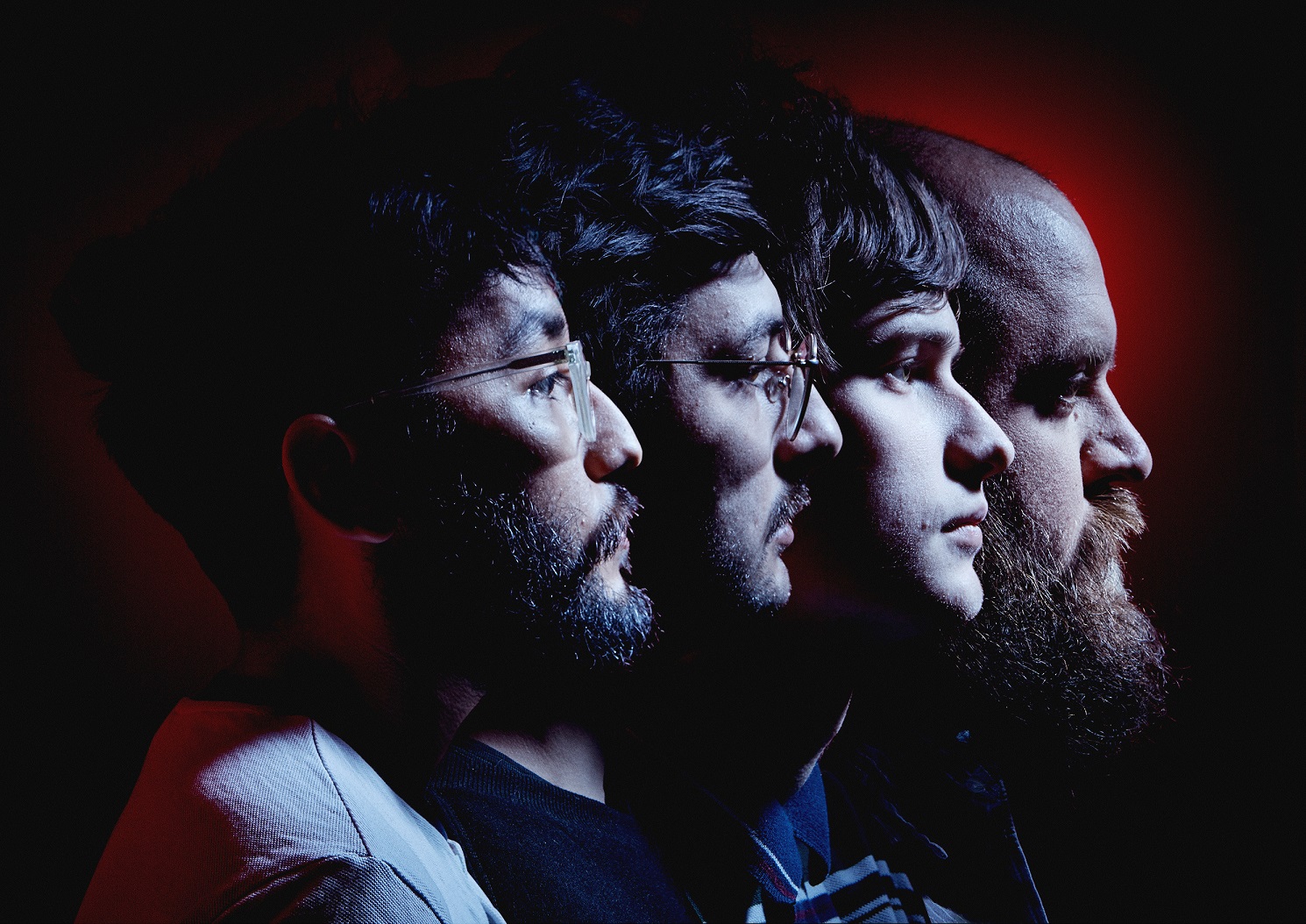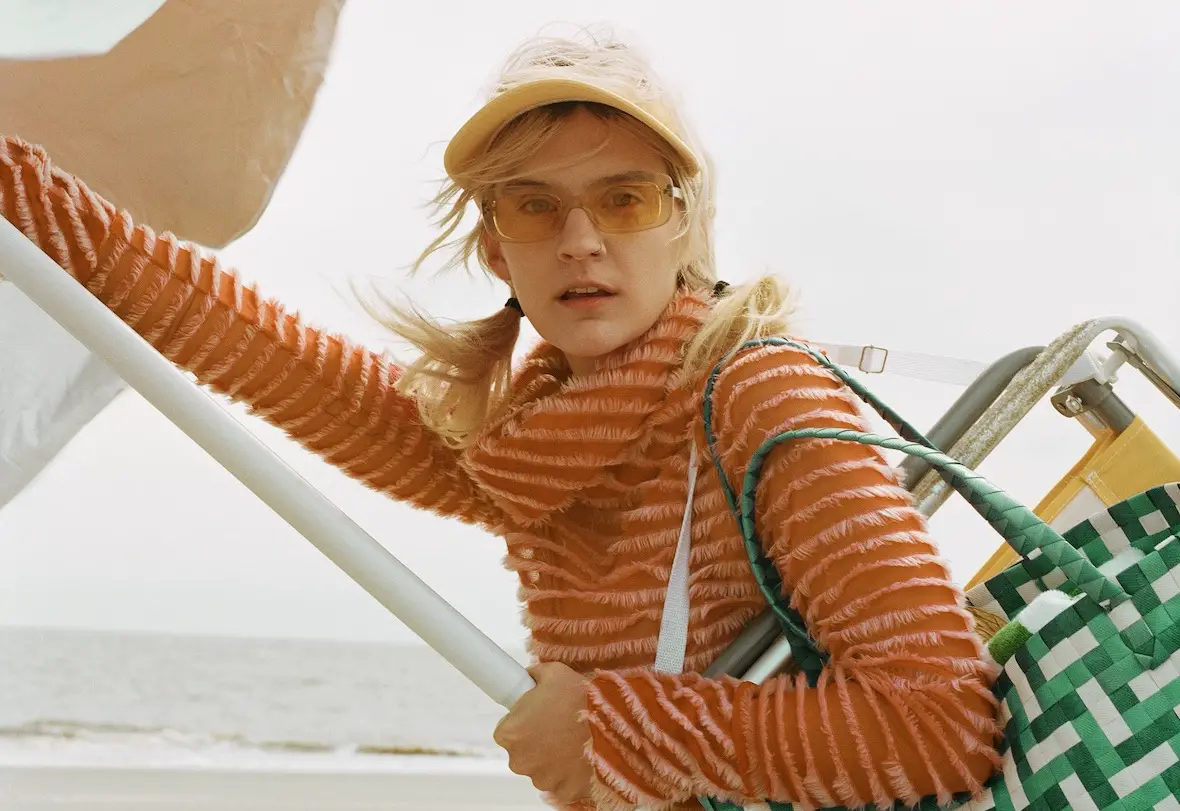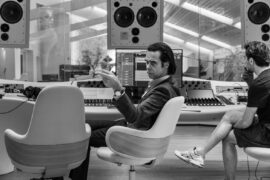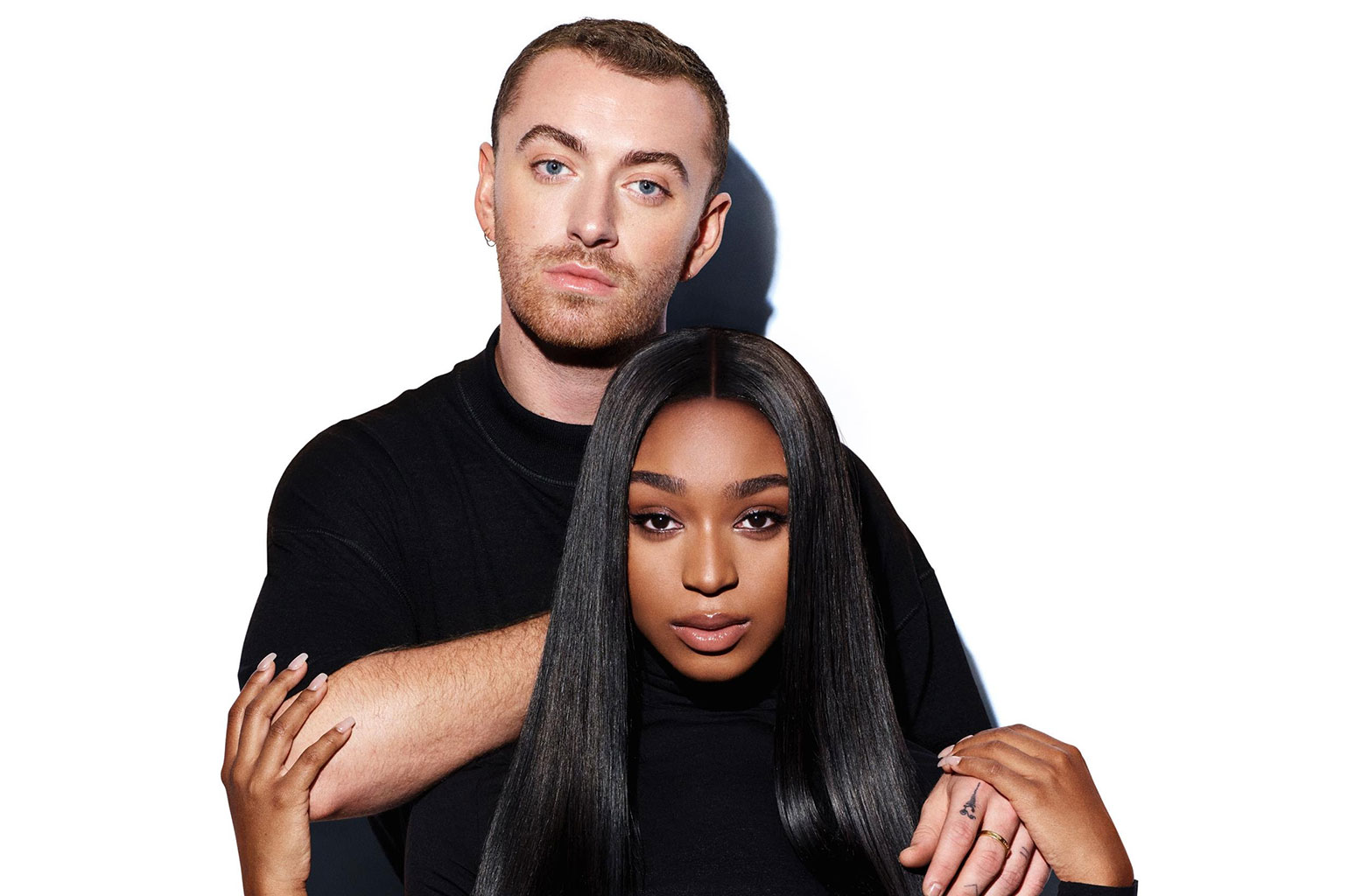‘Plum,’ Widowspeak’s forthcoming album, is a multifaceted and dynamic piece of work, so don’t just don’t call it a quarantine record.
— —
Molly Hamilton cites Widowspeak’s forthcoming album Plum (due August 28) as just “another thing” the band has done. This isn’t strictly true: it represents a preoccupation with somewhat more political subject-matter, it features a track inspired by Terry Riley, and it comes off the back of the band’s foray into “day jobs.” What Hamilton is understandably keen to stress, however, is that Plum is not a quarantine record, and isn’t so much the result of a calculated change of direction, but a product of the band’s wider environment.

Atwood Magazine caught up with Hamilton, delving into Widowspeak’s geographic identity, as well as musicians’ place in the rat race, and the role of elementary French in her songwriting. Plum is a rich listen with pressing messages and a worthy distillation of its vocalist’s observations!
Listen: Widowspeak
A CONVERSATION WITH WIDOWSPEAK

Atwood Magazine: Atwood Magazine: In the blurb for Plum there's a nod to “Pacific Northwestness” in your music. I consider myself uninitiated in that corner of the world; how do you go about representing that part of your country in your music, and what does it sound like?
Widowspeak: I would say that my kind of formative music-loving years were kind of based around the indie rock scene of the Pacific Northwest, so Sub-Pop, K Records, Kill Rock Stars, the Seattle, Olympia, Portland kind of scene. So I mean, wow, that doesn’t necessarily permeate our music in a super-obvious way all the time, I do think that just kind of the feeling of those bands, and the approach to song-writing, I think it’s definitely been an influence. I think that definitely in terms of the feeling of our music and being kind of, I would say, moody? I think when we first started the band, I think we were like watching, re-watching, Twin Peaks kind of thinking about that origin story, but also fantastical ways that the Northwest has kind of been portrayed.
I mean obviously I grew up in a city in the northwest, in Tacoma, so I wasn’t in the middle of the woods, but it’s also something where when you get outside of that space, you do realise what a different feel that part of the world has. Maybe it’s the light, maybe it’s the trees, I don’t know, but there’s definitely a sort of like mysteriousness… again, maybe it is just the lack of light! Yeah, that’s kind of a through-line for me at least; I mean Rob’s from Chicago, so I have to claim that more on my side.
I hope this doesn’t come across as judging a book by its cover - but I wouldn't personally think of your style of music first and foremost when I think of music that takes aim at say, hollow socio-economic structures or a crisis of purpose. Do you think this marriage of your style and your content has made it easier or harder to make Plum?
Widowspeak: You know, I think for me, the components of music have to come from a place of honesty, and I think in our earlier records, having personal turmoil and the idea of navigating personal relationships and being a younger person was at the forefront of my concerns, and while I don’t necessarily know that this is a shift in what Widowspeak is going to do forever, I feel like the last couple of years for me, I haven’t really been able to focus on anything else than what’s going on in the world. And not even necessarily on a political level so much as like on an existential level, I feel like the amount of time we focus on the internet and the imaginary components of social structure, the more it kind of loses track to hang on to things that are tangible, and I think just like the songs that became Plum, it wasn’t necessarily an intentional move to be more political, it was just that that’s kind of all I was thinking of, from an honesty perspective.
Like, if that’s what I’m feeling even before all of this became a little bit more relevant, I sort of had the feeling that other people were probably doing the same thing. So, yeah, I do think that there’s something to be said about like the universal nature of just emotions, you know? I don’t discount that by this record being a little bit more focused in one area, but I do think that for me, right now at least, these songs felt like they were more urgent for myself to write.
Would it be fair to say these messages and anxieties you've touched on perhaps overlap most overtly during ‘'Money'’ and ‘'Breadwinner'’? What was significant about that part of the album for you?
Widowspeak: I’ve had shitty, dead-end jobs through the years, and have experienced partners and friends and loved ones have dead-end jobs, and I think that, while that’s not drawing on something specific that happened recently, focusing on that in the last couple of years, it just felt relevant because you know we’re talking about – at least in the US – talking about minimum wage, and the idea of quality of life, and also how when people are constantly focused on branding themselves and trying to work all the time, and there’s not really this clear line anymore about when you’re working when you’re not, what you want to get out of any of this, or whether your job is a means to an end or your passion or not your passion – I don’t know. I’ve been thinking a lot about especially…the band is a job that we do sometimes… it hasn’t been a thing that we really relied on, with student loans and the realities of you can’t be on tour all the time and we needed to take a break, so we’ve been working at home and stuff.
But, I don’t know, when you sort of start thinking about it you start noticing all the other sort of messed-up ways that we approach time, and the finite nature of life, and how your job is a huge part of that. Whatever my job may be, and right now I don’t have one – Haha!— in the pandemic, I guess it’s just music right now, but I don’t know. Again, all the songs were written before the pandemic and before a lot of change, so you know the meaning for them is changing for me, as well.
Watch: “Breadwinner” – Widowspeak
Like you're saying, Widowspeak has been temporary, it's not your entire existence, do you think that meant that when you went back into work, you found it, therefore, shittier and more dead-end?
Widowspeak: Haha! Rob has been doing woodworking stuff so it’s at least a little bit more like, I don’t know, it’s easy to remove yourself… I’ve just been working in restaurants and coffee jobs and something like that, and also doing design projects, and both of those things feel really bad because sometimes it’s really wonderful just to be able to interact with people in a warm, surface-level interaction, like a very basic service. And I think that can be really respectable and also you can feel respected doing it, and yet at the same time, it can be really degrading, if you will, so it’s just funny, like, going on tour and stuff where you’re presenting this show of songs you’ve written, and there’s momentum, and then on the other hand, also realising that didn’t really change how people who don’t know you will treat you.
That definitely played into my perspective going into songs for sure, but it’s also something where it’s very valid to do those jobs – and I think it’s so funny right now, especially with the pandemic, with people valuing service work so much more because they’re either people who were the first out of work, or the people who are working through the whole thing, so it’s interesting. In some ways, my brain has sort of becoming mush… all of us are just kind of unsure what’s going on.
Were you able to switch off a bit, get into a routine, although you also cite the degrading sides of it and the superficiality?
Widowspeak: I just mean, kind of just trying to get my mind out of the idea of music. The music industry – I’ve had issues with it in the past. The idea of self-promotion doesn’t really come naturally to me. And it made me very anxious after our last record cycle, so I think in that sense like taking years off of it was actually really great, and focusing on other things, just like walking around my little town in upstate New York, and, you know, reading books and cooking. It’s funny because that’s all that everybody’s doing in quarantine – I feel like I had quarantine for three years – Haha! Right when I was ready to go back out and play shows again obviously it’s not possible! But yeah, I mean, it was definitely like a good recharge moment. Not to be doing things at the same pace we had been doing them for the last like seven years.
I saw you tweeted about remaking your resume. This is a very different style of self-promotion, I guess?
Widowspeak: Yeah, I mean it’s funny because I have gone to school for Interactive Design and, you know, just from an interest level, I like design, but I’ve never done it as a job and so right now I’m just kind of like looking around, like what can I do from home that feels interesting and engaging? It’s a very bad time to be getting mid to lower-level design jobs though because literally everybody’s trying to do that, but it’s just funny because thinking about how music… is its own thing and it’s so strange that it doesn’t at all translate to any other job in terms of trying to convince people that it’s relevant. It’s funny with me and Rob both, it’s almost this thing that various employers just don’t even know about, that it’s something that we do sometimes, you know, we’ll mention “Oh we have this band!” Yeah, it can be funny and awkward to navigate, but I’m pretty pragmatic about all of this.
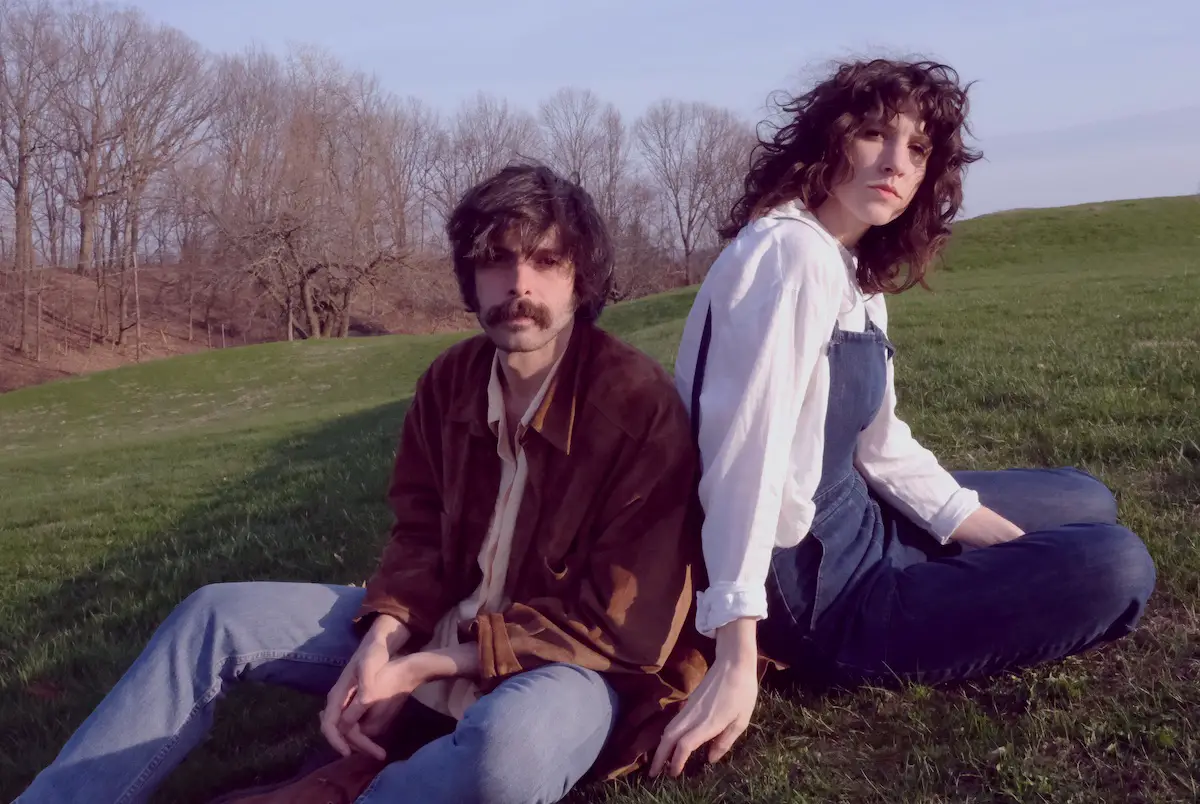
If you don’t mind me asking, what do you design?
Widowspeak: I mean, it hasn’t really been like a professional endeavour up to this point. I kinda just like fiddle around with animation, graphic design, websites, I don’t know. But mostly I’ve been doing it for like friends and things like that, you know, [they] ask me to make them something like do a logo or something! I mean, again, if I had been a more aspirational younger person, perhaps I would have like a more concrete side hustle going.
You might not have five albums though!
Widowspeak: Yeah! And it’s hard, it’s hard to juggle so many balls in the air! That’s what quarantine’s for!
It’s evident that you look to the 1960s for musical inspiration. I was wondering, touching on both the thoughts, maybe of minimum wage, and particularly now of the continued struggle of Black Americans in particular, do you think music and musicians are able to foment change again as they tried to, say 50 years ago or 30 years ago? Do you think music will become, or is already, a major force for social change?
Widowspeak: I mean, I definitely hope so; I feel like I have noticed, again, as somebody who’s kind of like pulled away from the music industry the last couple of years… like nepotism is a big problem in the music industry, and I think as people start to like feel like that is unacceptable and also that like, there need to be more like definitely more Black voices and Indigenous voices in music. That is something I feel strongly about. But I feel like the structures of it, of the music industry and the way that streaming is working and the way people are not paid ethically for their work, you know, it’s not just about exposure, I think it’s about making this sustainable for people as a job.
Speaking as a person for whom it is not a sustainable job but I do it anyway, I think that the way that you keep people engaged and give them platforms is to make it paid properly, and also like obviously the journalism, some journalism at least, it’s not very equitable in terms of who they are, who they’re featuring, but I do think that journalism is becoming a weird thing in general just because everything’s digital, print media isn’t around as much.
I hope things will change for the better. I mean I’m trying to keep focused on change and being engaged in what’s happening but, in terms of how the industry is going to change, I don’t know because I’ve been skeptical for so long that I just I think it’s gonna come from either younger bands who are starting out demanding more… like it’s funny how being like a buzz band or being an artist who’s been getting a lot of hype, you really do have power but people don’t really empower you to use that. There’s so much that is kind of unseen that kind of tries to keep you in the control of – not so much in Indie music – I’ve just kind of observed this in like, the more major labels.
The Creative Independent has been releasing these really great, informative break-downs of the music industry… like what they’re finding in terms of what industry professionals and musicians know about how it is working, especially in the pandemic. And I found that really like refreshing because it’s stuff that I’ve always thought about, but other people feel it too, so I hope all that is changing. There’re so many things to unpack!
Watch: “Plum” – Widowspeak
In terms of Plum, one track, in particular, I wanted to ask about was ‘‘Jeanie’’ which you said was influenced by Terry Riley. I just wondered how does the song and its minimalist lineage fit into the album’s messages? How easy was it even to integrate it sonically with your often rich, laid-back style?
Widowspeak: So, when we were kind of writing songs for the record, we weren’t really sure what it was gonna sound like. I think sometimes we have a more cohesive vision and this one was just sort of more… it just came together organically from songs we were writing, instead of like writing the songs to the record. Originally the lyrics were kind of just a stand-in I was singing over. I had written some chords and a melody, and then Rob had made the track that became “Jeanie.” It was pretty much just the loop and the textures, and the guitar picking melody. And then when I sang the melody over it I just kind of put in – I was trying to learn French – and I was putting in lyrics that were very basic French phrases.
And then I was originally intending to change those lyrics, but I actually thought that it almost felt better to me… if you know any French it had a really essential and basic meaning which I think actually felt kind of true to the song. So, we ended up not changing it. But for the longest time, that song was called “Christian Ocean.” It’s just funny that song had a kind of very meandering path to get to where it ended up, then it became I think Rob’s favourite song on the record, and it’s definitely one of mine.
Is that a typical Widowspeak creative process, filling it in with on-the-spot vocals and then building around it, or is that quite an unusual way of doing it for you?
Widowspeak: I mean, that’s not typical… I would say usually I like to write in a very basic acoustic or electric guitar chord progression song with the lyrics and the melody and, you know, it starts off being this sort of thing that the track is built around, which I think is a pretty normal way to do things, but then every once in a while I just have like my heart set on some sort of mood or feeling and if it’s not something that I really know how to accomplish, then we’ll work backwards… Rob [will] make a track, and then Molly will do something over it, which I think is actually good for me to do something differently.
The whole idea of top-line – I actually think it’s really fun to just like, be able to come up with a song or melody or lyrics, or over an existing piece of music because I do that all the time! I’ll feel like singing a lot to instrumental music or movie soundtracks and be like, ‘What if there were lyrics to this?’ If nothing else, it’s a fun exercise and sometimes you get really cool stuff out of it. And, honestly, that is, I guess, how most pop music is made these days.
Do you think that links somewhat to what we talked about at the beginning, what you mentioned about the sort of geographic status and identity of your music being more a feeling or a mood? Do you think that comes from what you’ve said - you start with the melody and you think ''What would this song be saying?''
Widowspeak: Yeah, no totally! I mean I think sometimes, even in the past we’ve done the other thing where you write a song and then you start producing, getting all the instrumentation down and you have very sad lyrics with a very upbeat sound. I think… sometimes it’s totally alright if those things don’t match, but I think every song is different. It’s kind of just like trying to figure out what works best.

The album finishes really beautifully with those shimmering cymbals and your spacious vocals. I wondered what the thinking was behind ending the album that way, particularly given that you've ended with a song named after the millennium bug?
Widowspeak: Yeah! I think that that song for me, even though it wasn’t like the most obvious single, it had been around earlier on in the process, but we weren’t sure if it was gonna end up being on the record or not, just ‘cause it wasn’t the obvious, like, cornerstone of the record. I think that thematically, for me, it represents a lot of the other ideas I was having which is kind of just like ‘You have options in this world’, ‘Your decisions are going to affect how you feel about your life’… It seems sometimes like people are just living blindly or just doing stuff and just kind of rolling with it. And that can be really overwhelming for me because it feels like sometimes you just want to scream into the void: ‘People, wake up!’ – Haha! – But at the same time… it’s also just kind of a reality.
Honestly, some of the lyrics on that song are referencing the Indiana Jones scene in The Last Crusade, where he has the holy grail, and it’s like the idea of choosing things and choosing that which you’re going to hinge your life on or the idea of climbing a mountain and falling. That was kind of referencing seeing the record numbers of Everest hikers a couple summers ago, which is also this very postmodern thing; you spend thousands and thousands of dollars to climb this mountain that will maybe – probably – kill you.
I’m speaking sort of flippantly about this, but I don’t mean it that way at all, it’s just there are so many strange abstract, mind-boggling things about modern life. In a certain way, I wanted to close the record that way – not really making any conclusions on anything, it’s just like I’ve been trying to just notice more.
It's interesting because when I was listening to ‘’Y2K,’’ when I drafted this question, I didn't want to say it was overly hopeful but I didn't want to say it was pessimistic, and it's funny what you've said, that it’s largely an observation in musical terms because that's how it sort of sounds as a listener as well?
Widowspeak: Well that’s good… I think I do kind of tend to be a little bit more pessimistic, but I’m trying to just have a more balanced approach, just like as a songwriter, as a human. So I’m definitely happy to hear that the record comes off that way as well.
My final question, and in this case you can choose to be as pessimistic or optimistic as you like: which aspects of Plum do you feel will work best when it emerges into a slightly different world from that in which it was written?
Widowspeak: Everything has kind of become strangely on the nose… it’s hard because I feel like everybody’s kind of writing these quarantine records – and they’re already kind of getting released – and it’s strange because we wrote it, at this point, what feels like so long ago, like last year… and it’s strange because I always feel like I definitely haven’t moved on from the present moment, but in some ways, the songs feel like a book I’ve sort of tried to keep, not closed, but like, “alright.”
You know, [we’ve] written a song, encapsulated that emotion, and now I’m trying to focus on other things but it’s funny because I want them to be, I guess not appreciated, but if they reach people now more than ever, I’m glad of that, but I almost feel like because we’re all kind of in this moment it’s not really the time to be hearing the same stuff you read on Twitter all the time – Haha!
But at the same time I feel like songs live way beyond the moment that they come out, and I still have people reaching out about random songs from our first four records, and being like, ‘Oh, I just heard those, I just found you guys’, you know, from a song that’s 10 years old, and it’s like, who really knows like what the life of this record will be beyond this moment? On the one hand, I’m happy that it can be hopefully helpful in like a cathartic way maybe, but I obviously didn’t imagine this. I guess the other thing is there are a couple other tracks on the record at least, if nothing else, “Amy” as a song was just kind of fun for us to work through as like a textural exercise – we haven’t really done that much with that kind of loop or anything.
Rob’s working again, but as we’re kind of working on even more new music for whatever time of the future when we can release it again, it’s like, I think Plum as a record represents kind of where we’re at, maybe where we’re going, and the future – who really knows? So, I don’t know, it’s just like, ‘another thing’ that our band has done! It’s almost like we’re kind of playing a long game, but it’s like we’ve been around a while and we’ll probably be around a while longer.
— —

Connect to Widowspeak on
Facebook, Twitter, Instagram
Discover new music on Atwood Magazine
? © 2020
:: Stream Widowspeak ::


